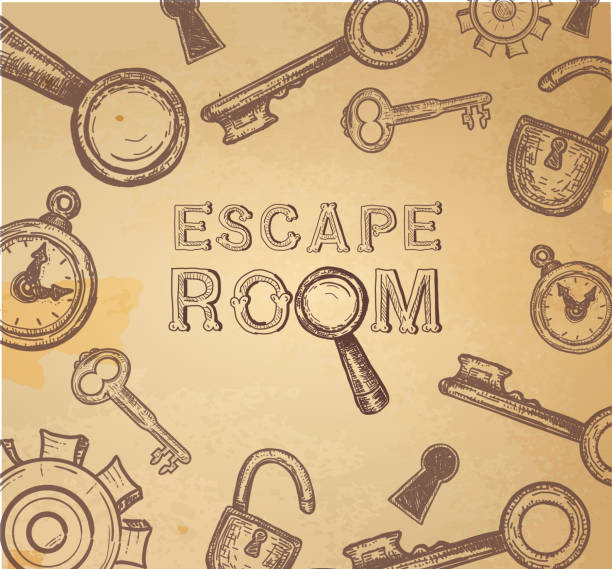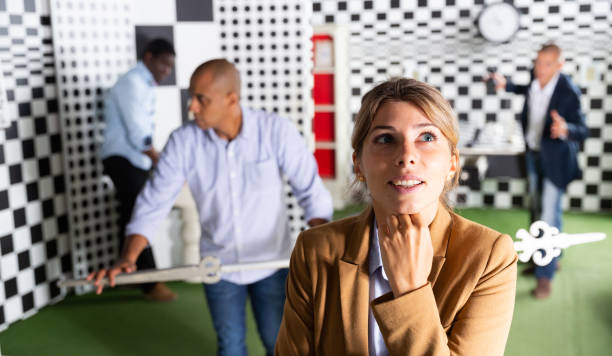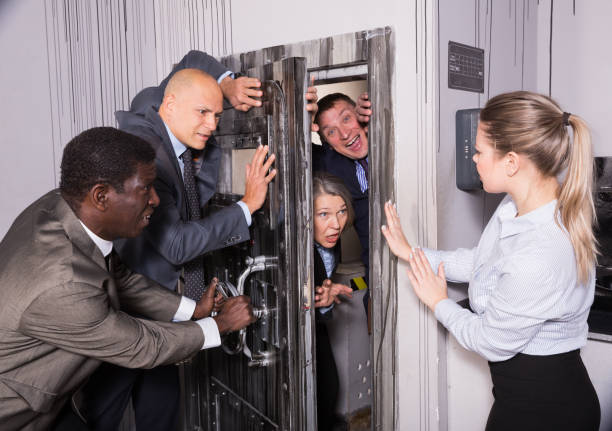These days, escape rooms are popular everywhere. Escape rooms are primarily about having a great time and having adventures. Physical and cerebral adventure games in which players must cooperate to find their way around the room and solve riddles in order to escape after being confined inside. Time is running out. In order to successfully exit the area, players must complete all of the tasks and puzzles within. The winning team is listed on the leaderboard of the escape room as well as having their name there.
The emergence is the primary benefit of physical escape. Because they really handle the objects and employ all six of their senses, players in a physical game create a stronger playing environment. Interestingly, each novel is set in a distinct make-believe universe that must come to life for the reader to fully understand the plot and the desired outcome.
Participants must conduct research, look for leads, and pass a series of tests, most of which require logic and mental agility, such as riddles and puzzles, though they may also need some physical effort.

In order to truly appreciate the experience, you must interact with the environment and immerse yourself in history while resolving various types of riddles. There are several reasons why escape games are so well-liked and why players keep coming back for more. The fact that it is a live action makes it more exciting and realistic than virtual games, which is the first consideration. We can utilise our imagination and logical thinking to solve unfamiliar difficulties and puzzles, strengthening our memory and enhancing our ability and knowledge. As a result, we maintain our brain’s youth and agility.
The escape rooms encourage physical activity, which has an impact on our self-esteem and health both during and after a session. A team-building activity like an escape room helps us improve our communication and teamwork abilities while allowing participants to express their emotions. The fact that escape rooms can help with leadership development while also showcasing each player’s abilities and resourcefulness is another intriguing feature of them. When you succeed in an escape room challenge, a fantastic sense of well-being, success, and enjoyment is created.
Let’s examine how the escape room measures critical thinking and problem-solving.
1. Problem-solving
In order to escape an escape room, one must be able to solve the puzzles that are offered in the room, putting their problem-solving skills to the test. The main goal of an escape room is to challenge your mental abilities. You must be aware that you will be under time pressure, fearing the unknown things that could come up in front of you, and that the opposing team’s adrenaline will be pumping through their bodies.
It is more challenging to pay attention to key things when you are under pressure because you are attempting to tackle the same problems. Together with dealing with the other group members and the other difficulties in the room, you also need to find a solution to the original issue. There is just one way to solve each of the many possible riddles that can lead to other, more complex challenges. Group brainstorming and verbal protocols are crucial strategies to employ in escape rooms because everyone has a unique set of mental faculties and approaches to solving problems, therefore it is beneficial to share your ideas and obtain feedback from others.
Since there are numerous varied, challenging riddles in escape rooms that take multiple steps to solve, it is essential to be open-minded to all issues and think creatively. People can profit from learning how to employ specific problem-solving techniques both in escape game rooms and in everyday life. The goal is to keep things straightforward, toss around concepts, and consider the big picture. A problem can easily become impenetrable if you stare at it intently for an extended period of time, much like searching for a missing puzzle piece.
2. Critical thinking
To establish an opinion, critical thinking generally involves analyzing the evidence that is already available, as well as observations and arguments. Prior to making a conclusion, critical thinking highlights the importance of being well-informed and open-minded. A critical thinker will make decisions based on logic and evidence rather than emotion.
This is what critical thinking entails, and it’s also what we do in escape rooms. The team’s main duty is to gather all the riddles and evidence that are in the room and in real life, as well as to connect them in order to achieve the final aim of escaping the room using a key, resolving a puzzle, or finishing a task. Everything requires close observation, concentration, and critical analysis of objects that are in your immediate vicinity.

Problem-solving abilities are not the only advantage that children acquire from critical thinking, as you will see when you participate in an escape room activity with your family. The child that engages in critical thinking is better able to reason logically, express themselves clearly, and learn more independently. Additionally, actual problem-solving has advantages that include boosted creativity, enhanced memory, and enhanced happiness, thanks to dopamine.
There are several courses that teach children to detect patterns, rearrange shapes, and use analogies, and they are all fantastic. Nevertheless, escape rooms are a great way to get kids enthused about critical thinking. Escape rooms put your critical thinking to the test in this way.
To solve riddles, you must use critical thinking. In fact, if you enter an escape room and don’t apply your critical thinking skills to solve the problems, you’re unlikely to escape. Escape rooms can be difficult for children; instead of seeking the riddles when they enter, they either freak out or give up after determining the task was too difficult. Regardless of how the puzzles were ignored, the kids were unable to escape. To escape, you must solve puzzles; however, some of these puzzles require careful observation or recall of what you learned earlier in the chamber.
Logical Thinking, Better Communication, Greater Independence, Enhanced Creativity, Improved Memory, and Boosted Mood are the main outcomes of critical thinking.
Conclusion:
You should try escape rooms with your family, friends, or coworkers at least once because it will benefit everyone. Escape rooms increase your abilities, personality, and ability to deal with life.
